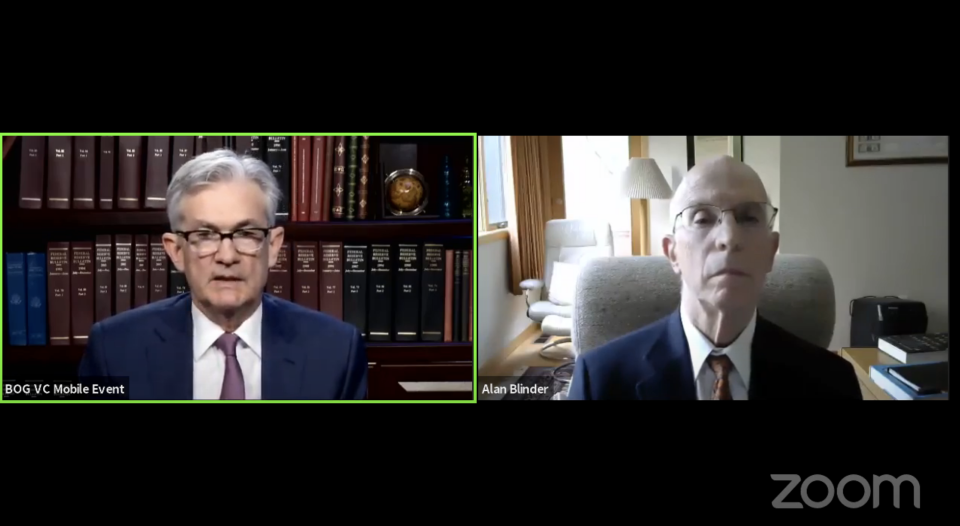Powell 'very comfortable' with crisis response tools, $7 trillion balance sheet
Federal Reserve Chairman Jerome Powell says he is comfortable with the central bank’s unprecedented reaction to the economic shock from the COVID-19 crisis, adding that the Fed’s priority was to move aggressively to avoid a deeper downturn.
“We crossed a lot of red lines that had not been crossed before and I’m very comfortable that this is that situation in which you do that and then you figure it out afterward,” Powell said in a webinar hosted by Princeton University on Friday.
Since the coronavirus pandemic began taking grip in late February, the Fed has slashed rates to zero and restarted its crisis-era policy of asset purchases through quantitative easing.
But the Fed has also flexed its creativity in opening up nine liquidity facilities designed to backstop or support markets ranging from the U.S. dollar to risky corporate credit.
Powell repeated a frequent talking point in previous public remarks, promising to use its tool “to their fullest extent.” He said Friday that policymakers feared the fallout of failing to do so, as a 50-year low in unemployment evaporated in the course of 60 days.
“It would be very hard to explain to the public why we would hold back from doing that,” Powell said.
Balance sheet
Powell said he was also comfortable with the size of the Fed’s balance sheet, which quickly eclipsed its Great Recession-era levels and passed the $7 trillion mark last week.
In addition to buying U.S. Treasuries and mortgage-backed securities, the Fed balance sheet has also taken on assets to support its liquidity facilities which are in many cases supported by Congressionally-approved funds from the U.S. Treasury.
Since the last week of February, the Fed balance sheet has added an average of $226 billion each week, and now stands at $7.15 trillion as of May 27.

The Fed has not offered forward guidance on whether or not it will increase or decrease the pace of its balance sheet growth, but Powell said that the central bank’s holdings “can’t go to infinity.”
Powell emphasized that in the meantime, he does not see risks to inflation amid the Fed’s ballooning balance sheet.
“I am comfortable with where we are now and the path that we’re on and don’t see risks based on what we’re doing right now to inflation or to financial stability,” Powell said.
The Fed still has yet to start up some of its pre-announced facilities, including ones concerning direct corporate bond purchases and municipal bonds. Powell said it is a “few days” away from opening up its hallmark facility: a Main Street Lending Program that seeks to offer cheap loans to businesses.
Powell’s remarks will likely be among the last from Fed officials before the normal “blackout” period during which Federal Open Market Committee members refrain from making public speeches.
The blackout period will lead into the FOMC’s next policy-setting meeting on June 9 and 10.
Brian Cheung is a reporter covering the Fed, economics, and banking for Yahoo Finance. You can follow him on Twitter @bcheungz.
Fed officials warn of long road ahead for U.S. economic recovery
Congress tells Fed to hurry up on cheap loan program for Main Street
Powell: Federal Reserve not out of ammunition 'by a long shot'
Fed flags corporate leverage as financial system weathers COVID-19
A glossary of the Federal Reserve's full arsenal of 'bazookas'
Read the latest financial and business news from Yahoo Finance
Follow Yahoo Finance on Twitter, Facebook, Instagram, Flipboard, SmartNews, LinkedIn, YouTube, and reddit.
